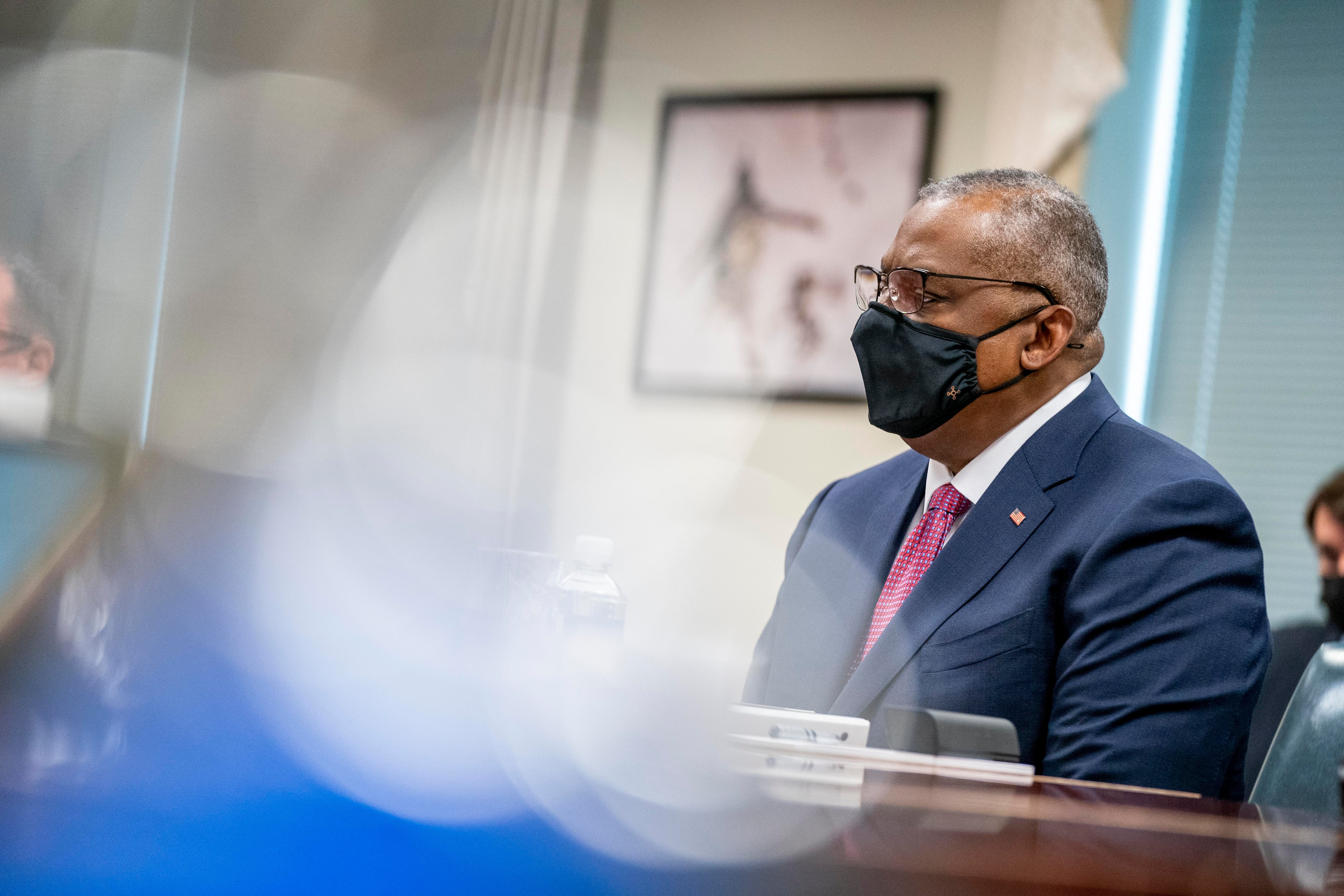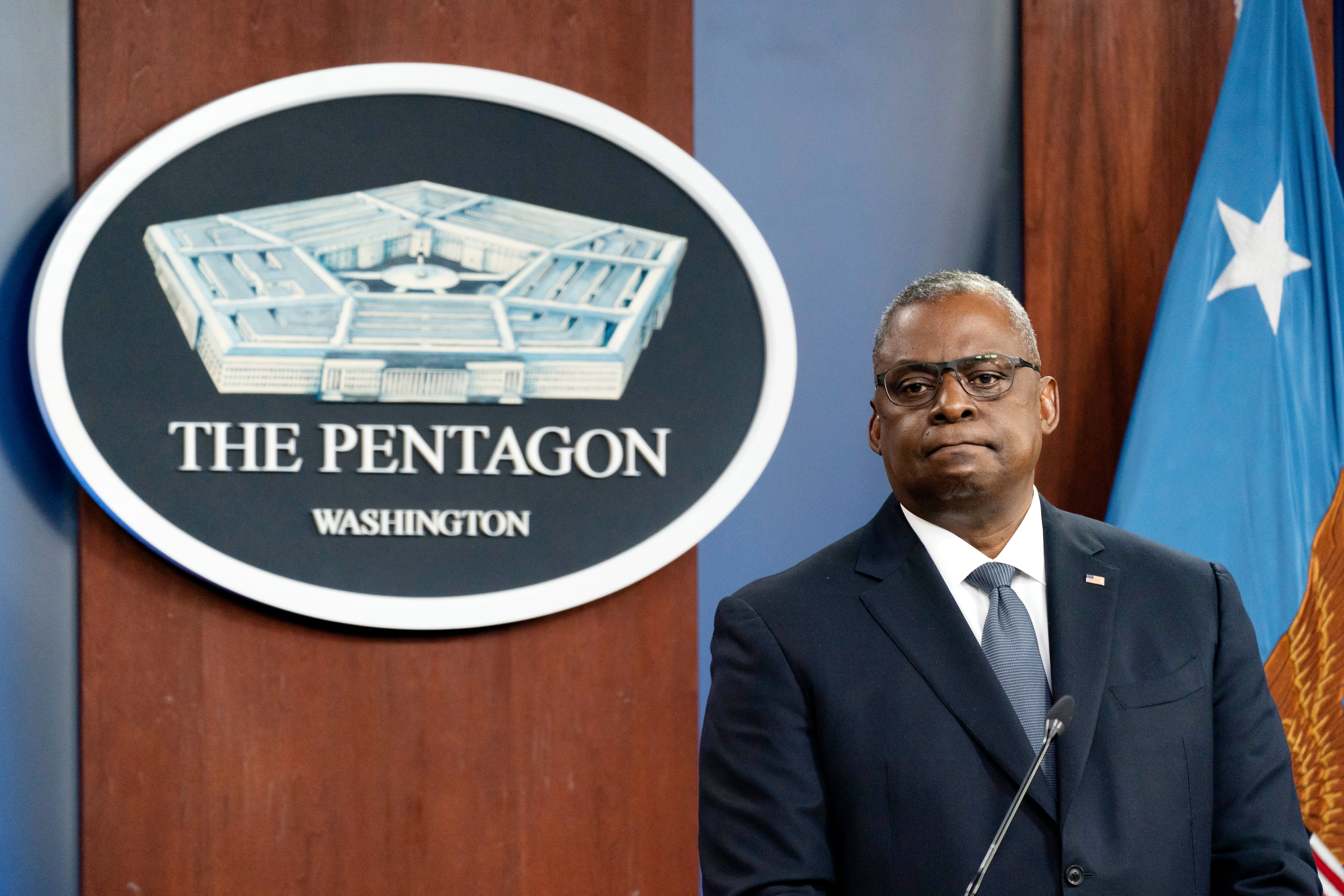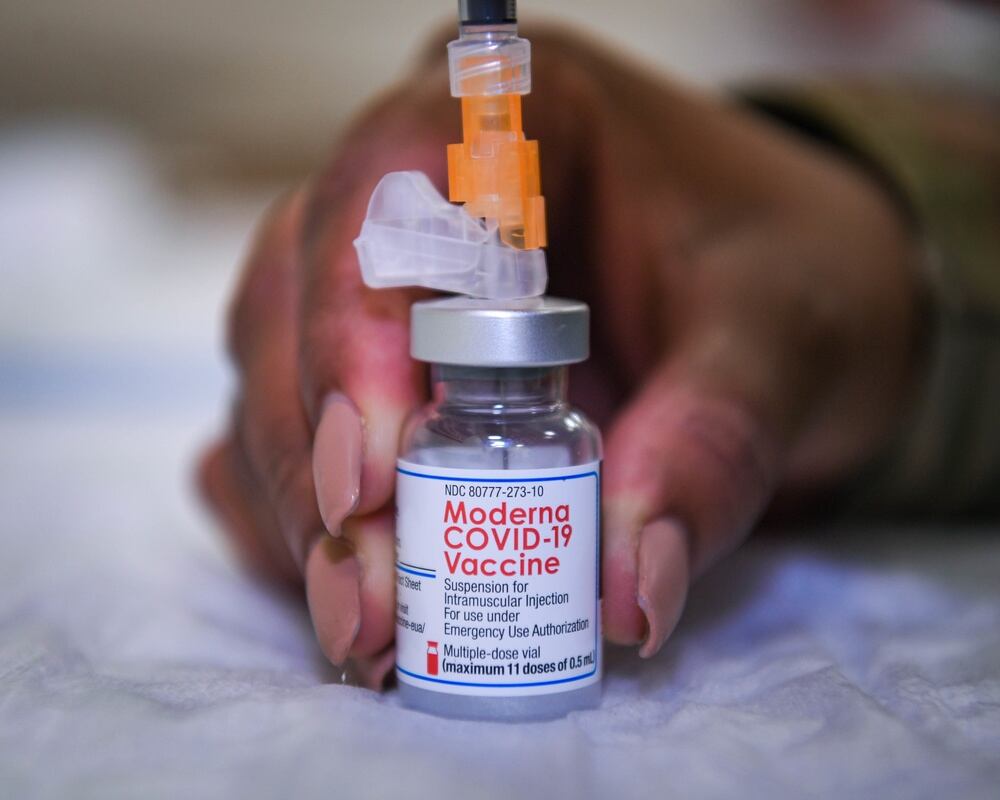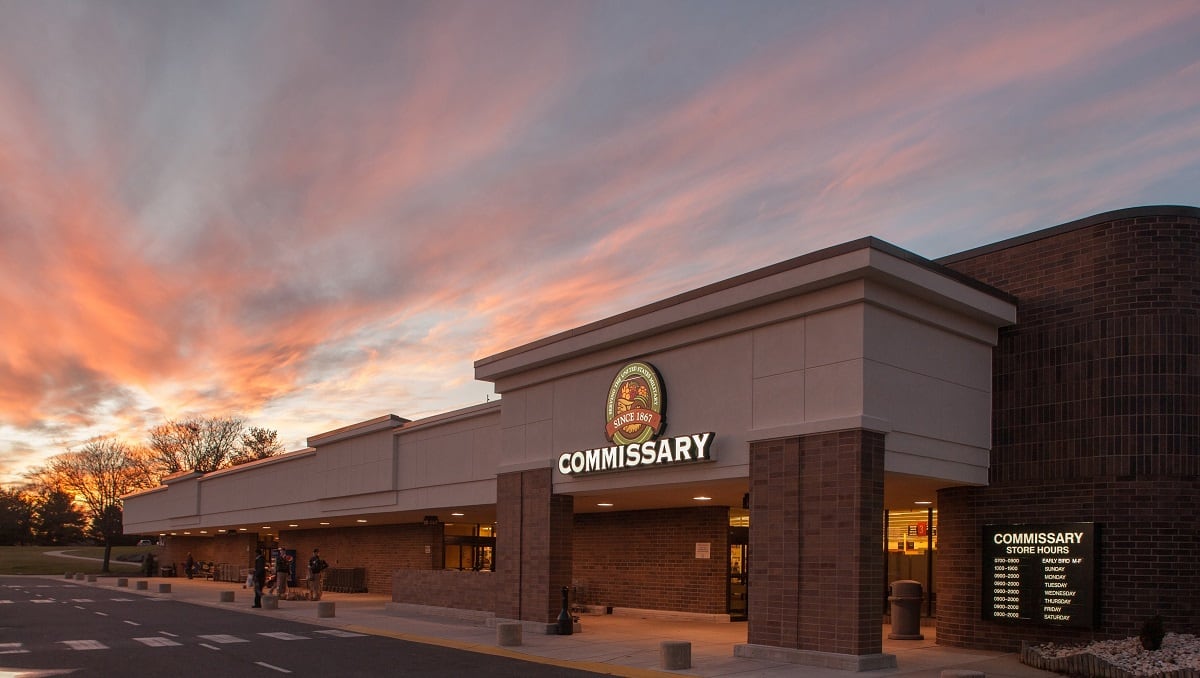Editor’s note: This story was first published in the Tampa Bay Times.
TAMPA — A Navy commander and a Marine lieutenant colonel who have resisted a military-wide vaccine mandate took the witness stand Thursday in a Tampa federal courtroom, describing their religious reasons for refusing to be inoculated against COVID-19.
The pair testified anonymously, with a judge’s consent, to protect their identities. Both described themselves as practicing Christians who believed that receiving vaccines would introduce impurities into their bodies. Each also expressed concern about fetal cell lines, which are used in the research and development of various vaccines and many common medicines.

The military denied each of them a religious exemption to the vaccine requirement. Both could face discharge if they don’t comply.
“I cannot knowingly put something in my body that I believe is a toxin,” said the Navy commander, who leads some 320 sailors aboard a guided-missile destroyer based in northern Virginia.
“For me, it would be a sin,” said the lieutenant colonel, who serves as a diversity and inclusion officer with the Marine Forces Special Operations Command. “Because it would defile my body. Because my body is a temple of Jesus Christ.”
The officers are now at the center of a lawsuit brought by the Liberty Counsel, a religious organization that has fought against the military’s mandate. They obtained a small victory last week when U.S. District Judge Steven Merryday issued a temporary order barring the military from disciplining the pair.
RELATED

At the conclusion of the daylong hearing, Judge Merryday extended the temporary order until Friday, Feb. 18.
Amy Powell, an attorney for the Department of Justice, said the government’s position is that service members must take the vaccine or face discipline. She noted that most service members had been vaccinated. Some have received exemptions for medical reasons.
“We would rather people not be in the military than place other service members at risk,” she said.
The Navy officer, an 18-year veteran, testified for more than an hour. Sitting straight-backed in formal attire, he spoke softly, his voice at times cracking with emotion.
“I am a practicing Christian,” he said. “I believe my body is a temple.”
He expressed a belief in keeping his body free of impurities, and said that extends to things he eats, listens to or watches. He cited portions of the Bible, including the books of Daniel and Romans, to assert a commitment to safeguarding his body.
He said he avoids medications. He received vaccines as a child, but has grown to regard them with skepticism.
The lieutenant colonel voiced similar beliefs. She holds a biology degree, she said. When vaccines started to become widely available, she did her own research and concluded they were not in line with her beliefs.
She was held back from a planned deployment to Bahrain after refusing to get one. She tested positive for COVID-19 in January and spent time recovering, but still came into the office when a boss asked for her help with a project.
She expressed particular concern about the use of fetal cell lines to develop some vaccines. While the vaccines do not contain aborted fetal cells, some of their testing and research involved the use of fetal cell lines, which were derived from cells that are decades old. She was asked if she would get a vaccine that did not use fetal cell lines if one was available.
“No,” she said, noting that she also didn’t trust vaccines that use messenger RNA.
“I don’t believe this messenger RNA is clean,” she said. “That is something that the spirit rose up in me and said ‘this is unclean.’”
Amid a series of questions directed to the Navy commander, Judge Merryday noted it is not his responsibility to determine the validity of a person’s religious beliefs.
RELATED

The Navy commander described at length how his ship has continued to operate since the pandemic took hold. His destroyer has continued overseas deployments amid mask-wearing and other efforts. When personnel aboard the ship tested positive for the virus, they would be escorted off and isolated until healthy again. The ship personnel also did contact tracing and quarantines for those who’d been exposed.
Over nearly two years, the commander said, about 170 to 180 of his ship’s personnel have come down with COVID-19 at some point. None have become seriously ill, he said. And the pandemic has not impeded their ability to carry out their missions, though at one point they had to borrow personnel from other ships.
As the commander, he is in charge of reviewing all orders given to the sailors under his authority. Those include orders regarding the vaccines. Out of the personnel aboard his ship, 17 claimed a religious exemption to receiving the COVID-19 vaccines. A chaplain investigated each and determined 16 were legitimate.
He mentioned one man who simply refused to comply with the mandate. It was the commander’s duty to carry out the administrative separation process.
“He was one of my best sailors,” he said, his voice trembling.
He submitted his own religious exemption request in September, but it was denied. The 16 sailors on his ship who also claimed religious exemptions were also denied accommodations. His appeal of the decision was also denied in late January.
One day in early November, the commander said he started to lose his voice. He consulted a nurse, who said that wasn’t a common symptom of COVID-19. He went about his duties but was later told by a superior officer to take a coronavirus test to be sure. It came out positive. He spent two weeks out of service.
He described experiencing hostility from his superior officers, who warned him he needed to receive the vaccine within five days. If he did not, he could be discharged from the Navy.
Powell, the government attorney, alluded to concerns of the commander’s superior officers that he wasn’t taking serious measures to prevent the spread of the virus. She said they’ve lost trust in his judgment.
On cross-examination, he acknowledged a responsibility to set a good example for his sailors. He also acknowledged he’s not a doctor and that if too many people fell ill, a ship could be taken out of service, which impact the mission.





